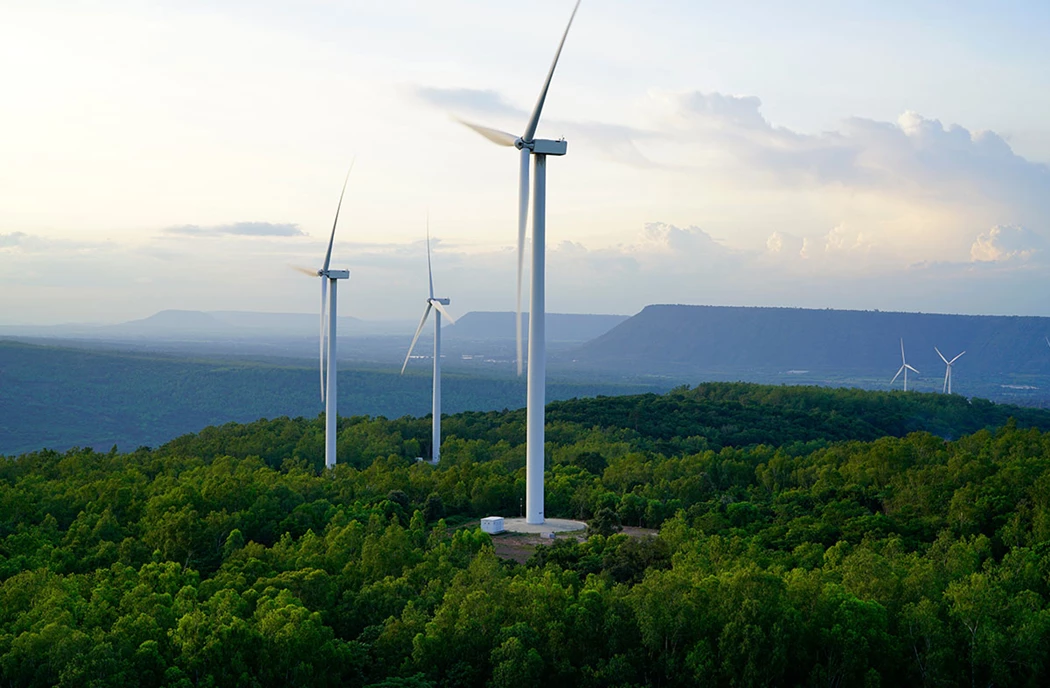US Nuclear Regulator Pursues ‘More Efficient’ Reactor Approvals
(Bloomberg) -- The top US nuclear regulator is on a mission to streamline approvals for new reactors and accelerate power-plant construction.
“We can be more efficient,” Christopher Hanson, chairman of the Nuclear Regulatory Commission, said in an interview. That’s a notable shift for the agency tasked with overseeing the country’s fleet of 94 reactors as well as licensing new ones.
Electricity consumption is poised to surge in the US, and there’s growing interest in meeting that demand with carbon-free nuclear power. However, the NRC’s years-long approval process is seen as a critical bottleneck in the effort to expand domestic nuclear capacity.
Investors are cool to funding new, big reactors and Hanson has been meeting with bankers in an effort to convince them that his agency can do a better, quicker job of ushering projects through.
“Regulatory risk is overpriced in the market,” he said. “I won’t say it’s zero, but i want that risk to be appropriately priced.”
The key risks are that it can take so long for a license application to get approved, and that it’s often unclear just how long it will take. The NRC took almost four years to approve the last major US nuclear project, two reactors at Southern Co.’s Vogtle plant in Georgia that involved a new design. Subsequent approvals should happen faster, once the agency is familiar with them.
That’s especially important as the industry seeks to develop the next generation of smaller reactors that are expected to be faster and cheaper to build. While the first of these will also require a thorough, lengthy review, once they’re well-understood, Hanson said he’d like to see new projects approved in less than a year.
The drive to streamline the NRC’s licensing process comes as US power demand is climbing. The battle to rein in climate change is spurring a broad shift away from fossil fuels in factories and homes. At the same time, technology companies are building data centers that consume enormous amounts of electricity. Nuclear has the opportunity to address that demand, but only if the industry can build more reactors.
“The need for energy, and interest in nuclear power, is rising,” Hanson said. “We know this agency needs to step up and meet this moment in a serious way.”
©2025 Bloomberg L.P.
KEEPING THE ENERGY INDUSTRY CONNECTED
Subscribe to our newsletter and get the best of Energy Connects directly to your inbox each week.
By subscribing, you agree to the processing of your personal data by dmg events as described in the Privacy Policy.
More renewables news

Nissan Commits Another $1.4 Billion to China With EVs in Focus

US Imposes Tariffs Up to 3,521% on Asian Solar Imports

India Battery-Swapping Boom Hinges on Deliveries and Rickshaws

China Reining In Smart Driving Tech Weeks After Fatal Crash

Japan Embraces Lab-Made Fuels Despite Costs, Climate Concerns

GE Vernova’s HA-powered Goi Thermal Power Station adds 2.3 GW to Japan

Used Solar Panels Sold on Facebook and eBay Have Cult Following

Trump Halts NY Offshore Wind Project Work Amid Sector Review

Big Bets on Speculative Carbon Capture Tech Ignore Today’s Solutions
















